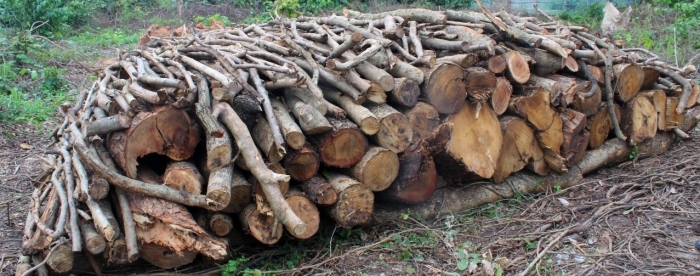News
Our stories ... ...

Ghana - 01 October, 2021
The charcoal enterprise in Ghana has for decades provided the bulk of energy needs of majority of households and serves as the livelihood base for scores of people especially in areas endowed with trees suitable for charcoal production. Though charcoal is accessible to a large number of households, it is characterized by poor harvesting and processing practices. Its high consumption is largely attributed to population growth, poverty, and urbanization. The poor practices associated with charcoal production have significantly contributed to deforestation and forest degradation especially in Ghana’s transition and savannah zones.
Recently, authorities in the Savannah Region (a major charcoal production hotspot in Ghana) banned illegal logging and commercial charcoal production. This action was necessitated due to the indiscriminate harvesting of rare and valuable tree species like shea, kapok, rosewood, and others for commercial charcoal production. Though with good intentions, the ban was not without negative implications for actors along the charcoal commodity chain including local producers, merchants, and transporters. The Bono East region which hosts Ghana’s major charcoal-producing forest district faces an eminent threat to sustained charcoal production from dwindling resource base and/or ban on commercial charcoal production like the adjoining Savannah Region. Evidence suggests that if current charcoal production practices within major charcoal-producing areas remain unchecked, tree resources may not be available for charcoal production in 20 years to come.
As part of efforts to remedy the situation, Tropenbos Ghana, and partners under two projects, i.e. Property, Access and Exclusion along Ghana’s Charcoal Commodity Chain – funded by DANIDA, and Forest Landscape Restoration Project – funded by GIZ, facilitated two fora in Kintampo and Nkoranza to deliberate local actions towards sustainable charcoal production. The forums held on 22nd and 23rd September 2021 in Kintampo and Nkoranza respectively brought together stakeholders including charcoal producers, traditional authorities, Forestry Commission, Environmental Protection Agency (EPA), Ghana National Fire Service, and representatives from the Municipal and District Assemblies.
At the fora, stakeholders made commitments to initiate, and pilot local measures aimed at sustaining charcoal production. Participants, as well as experts in the field, shared insights on the proposed Green Charcoal Participatory Guarantee System (PGS) which dwells on community-based or locally initiated actions aimed at sustainable charcoal production. The PGS is a participatory system that ensures sustainable production of charcoal through the establishment of organized charcoal production groups, setting local production and trade standards including traceability (labeling), and equitable/ fair pricing. Stakeholders, especially charcoal producers who were poised to see their business thrive expressed willingness to follow processes, contribute their quota including facilitating the formation of charcoal cooperatives to adapt, and pilot PGS to sustain charcoal production while also preserving biodiversity.